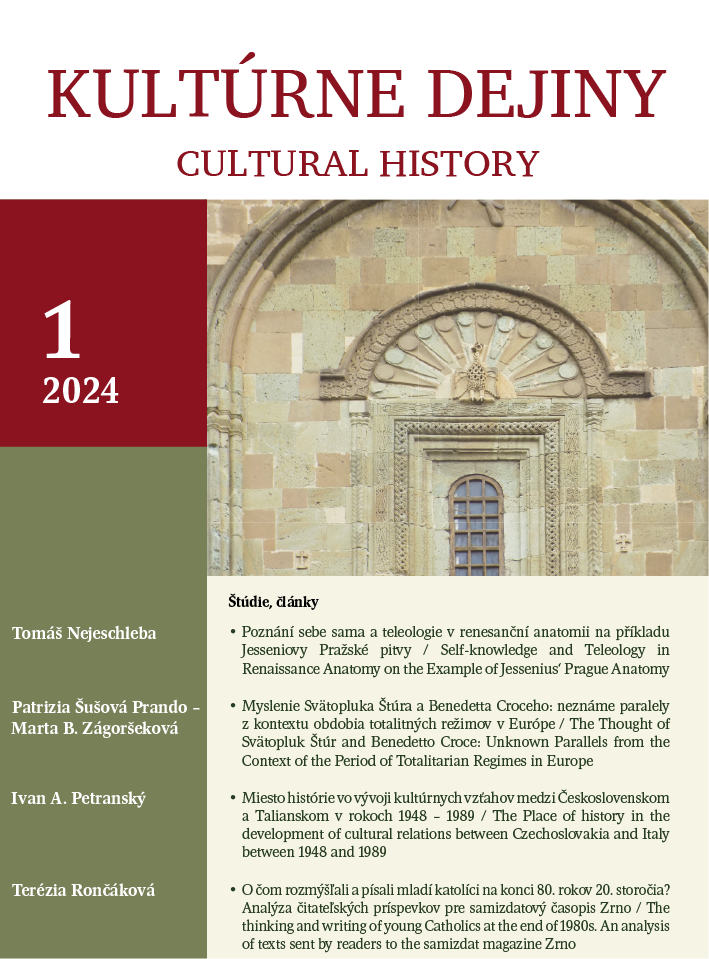Poznání sebe sama a teleologie v renesanční anatomii na příkladu Jesseniovy Pražské pitvy
Self-knowledge and Teleology in Renaissance Anatomy on the Example of Jessenius' Prague Anatomy
Author(s): Tomáš NejeschlebaSubject(s): History, Theology and Religion
Published by: VERBUM - vydavateľstvo Katolíckej univerzity v Ružomberku
Keywords: Renaissance; Renaissance Anatomy; Teleology; Self-knowledge; Johannes Jessenius
Summary/Abstract: In the article, teleological thinking in Renaissance anatomy is presented by the example of the Wittenberg anatomist Johannes Jessenius (1566-1621), who performed the first public dissection in Prague in 1600 and published a description of it in Wittenberg in 1601. Jessenius, a graduate of the University of Padua, is also concerned with teleology, which he uses both to justify anatomical practice and to incorporate it into his own interpretation of anatomical acts. In my article, I focus primarily on the dedication and introduction to Jessenius's Prague Anatomy, where teleological thinking is most clearly manifested. I present the teleology in Jessenius in two stages with reference to the passage in the dedication to the Prague Anatomy. In keeping with contemporary practice, Jessenius interprets the Delphic oracle “Know Thyself” as a call to anatomical knowledge of the human body. At the same time the self-knowledge is the knowledge of God in the sense of the connection between cognitio sui and cognitio Dei. The knowledge of the principle of purposefulness thus seems to be the culmination of all anatomical study. In terms of teleology, Jessenius focuses on the points in which the human being differs from other creatures: mind, hand, upright figure. Special attention is paid in my paper to the anatomy of the hand, in which Jessenius follows specifically Andreas Vesalius, who adopts a teleological understanding of the hand from Aristotle and Galen.
Journal: Kultúrne dejiny
- Issue Year: 15/2024
- Issue No: 1
- Page Range: 6-19
- Page Count: 14
- Language: Czech

